

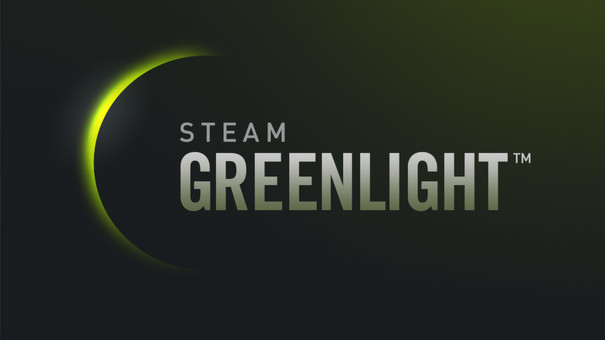

Valve had a problem. It was the most popular and respected developer in the games industry, but as a relatively tiny company it was too small to effectively manage its growing popularity. Everyone and their dog wanted to get on Steam and Valve was having trouble keeping up.
So, Valve created Greenlight; a system by which games are submitted publicly so people can vote for the ones they like. If a game gets enough votes Valve could look at it and perhaps offer a chance for that game to feature on Steam. The whole thing's a bit like X-Factor, except with a panel of 40 million Simon Cowells and only the scant possibility of a record contract at the end.
Like X-Factor though, Greenlight suffers because it has to let the ugly people in along with those who can really perform - so Valve's next problem was how effectively filter the uglies without deterring the talent. Last week the company unveiled its solution: to charge a one-time $100 fee (about £62) for submissions, with that money going directly to charity. The move immediately divided developers and audiences. Depending on who you talk to the money is either too much, not enough or completely irrelevant to the real issue - regardless of stance, nobody seems to happy about it.
"I must admit, the $100 charge does leave a bit of a sour taste in my mouth, which is only mitigated slightly from the knowledge that it goes to charity," says Andy Hodgetts of Project Zomboid developer The Indie Stone. Andy slides firmly into the latter category of opinion, dismissing the fee as an irrelevance that has no bearing on the quality of submissions.
"A blanket fee of that size does nothing to guarantee quality except to ensure that the amazing games by tiny developers are now potentially unlikely to appear on Greenlight," continues Andy.
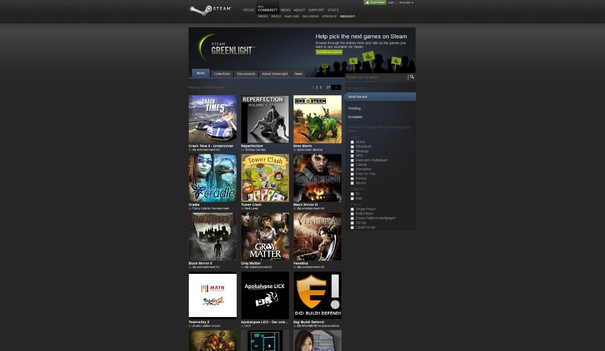
The relative value of $100 has been one of the most contentious points thrown up by Greenlight's recent changes. Is it a lot of money or is it a pittance? It's hardly anything in the face of a normal game budget, but then independent games often resist comparison to any norm...
"$100 is a lot of money to a lot of people," says independent developer Sophie Houlden, who sells games over alternate distributors such as Desura. "Right now I don't even have $100 total. It wouldn't be so bad if some kind of return was likely... but it's a lottery ticket, and an expensive one too."
Meanwhile, more established developers who are also keen to take advantage of Greenlight hold a different opinion. Former Doom level designer and Alice creator American McGee has submitted three games to Greenlight through his independent studio, but says he'd rather see the fee increased than lowered. In his opinion, Valve need to either charge a 'serious fee' or not bother, and $100 isn't serious enough.
"At the current level you're still going to get spammers who think being able to upload a joke is worth $100," says American. "Plus they're going to be in a position to claim that their upload is 'legit' simply because they paid. Once you get to around $1000… that's a pretty expensive joke."
For other developers though it's Greenlight itself that's the problem - not the $100 lottery ticket, as Sophie called it. One Greenlight developer we spoke to would only comment under condition of anonymity, but said the real issue was a lack of transparency in the system. There's no rule on how many votes a game needs in order to 'win' Valve's assessment, nor what expectations Valve might have if it did look at a game.
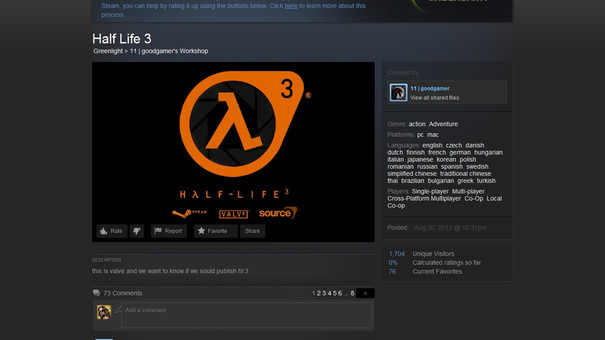
"What bothers me is the voting system," says this anonymous developer. "Call me paranoid, but I think the number of votes you need will vary for each project depending on what Steam thinks of its potential anyway. Bring a cool looking game with pastel tones depicting funny dwarves digging around, and whatever the votes, you'll get accepted. Bring something that seems out of the main trends, like a historical wargame, and you'll be waiting a long time."
Others, meanwhile, consider Greenlight to be one of the best things to happen to independent development since Steam first started accepting non-Valve games. It's a means by which developers can showcase their games, galvanise their communities and gauge the viability of their games all ahead of actual release and while tempting distributors. Simon Roth has worked on indie hits such as Frozen Synapse and is currently developing his first solo title - which he plans to eventually submit to Greenlight in the future.
"Greenlight is a brilliant idea," says Simon. "Beforehand, in my opinion, the Steam approval process was somewhat broken, opaque and counter intuitive."
That said, even Greenlight fans such as Simon agree the system has flaws that need to be addressed - and a controversial entrance fee is only one aspect of that. Simon highlights a lack of incentive for users to interact with Greenlight at all, as well as a comments system which is filled with abuse and presented unhelpfully - problems that are dissuading other developers from even considering Greenlight as a viability...
"I've been scared off Greenlight by watching other people's projects," says Philip Carlisle, an AI researcher who's using his PhD work as the basis for a commercial game. "I was hoping Greenlight would be the kind of place where I could post work-in-progress videos and get good feedback... Unfortunately looking at the comments, they seem to be leaning far more towards the 4Chan level of maturity."
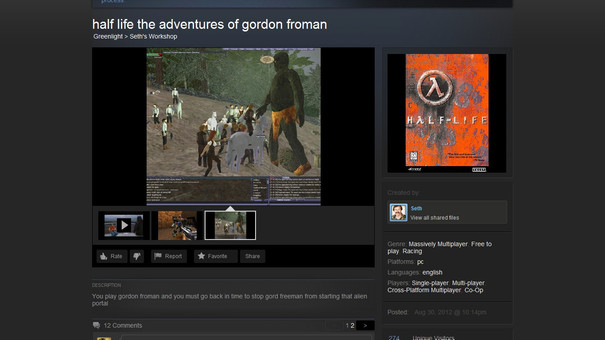
Again then, it's back to Valve's first problem - that it's so popular it attracts the bad along with the good. Steam users aren't just the passionate and considering few who try to offer meaningful feedback and support truly remarkable games; they're also the type of infuriating internet troll who'll upload a Greenlight submission for Half-Life 3.
In short, Valve's biggest problem is its customers.
"Valve gave the gaming community a chance with Greenlight," says Strongman Games founder Erlend Grefsrud, pointing out that Valve is under no obligation to offer a 'free ride' to anyone. That it did so originally should be an important factor in Valve's defence and should help highlight that the real issue isn't some classist debate over the relative value of $100.
"Valve launched Greenlight for free, [but] the community wasn't responsible enough to moderate itself," says Erlend. "If people were different, Greenlight would not need a fee. But they aren't, so it does."
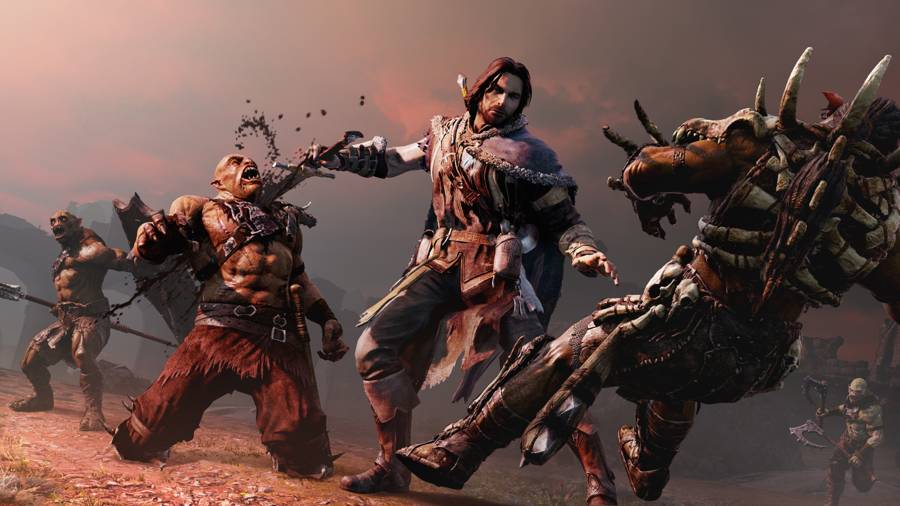
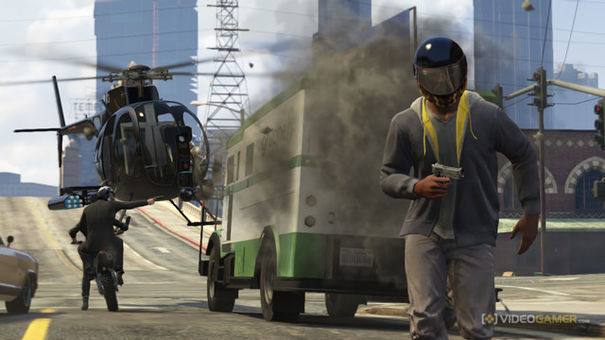


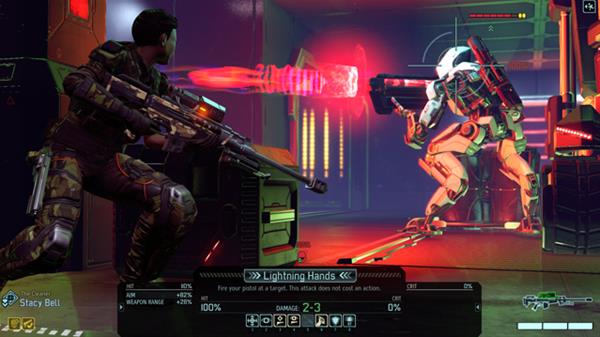 XCOM 2 Hands
XCOM 2 Hands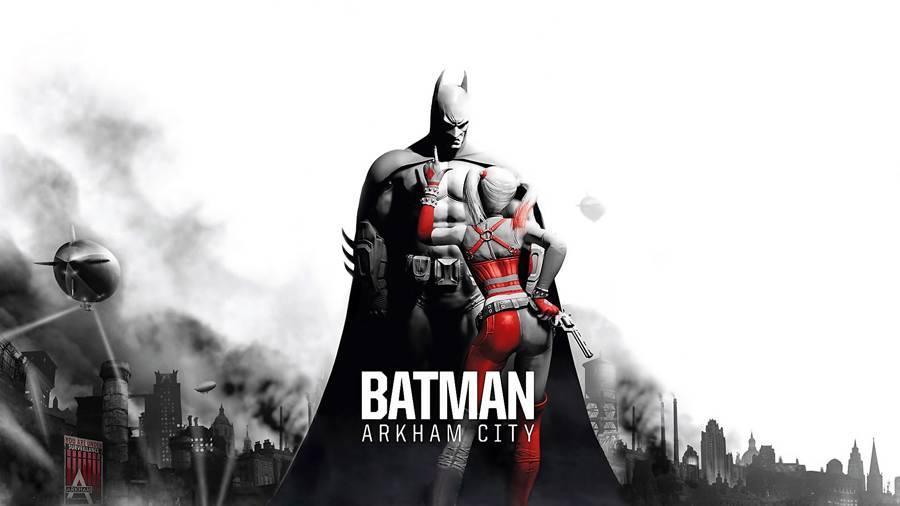 Batman Arkham City Finding Nora Freeze
Batman Arkham City Finding Nora Freeze GamesCom: The True Arrival Of Next
GamesCom: The True Arrival Of Next Xbox One Eighty: Is It Still Going To Plan?
Xbox One Eighty: Is It Still Going To Plan? My Top 3 Games Like Dungeon Keeper - How My Love For Gaming Started
My Top 3 Games Like Dungeon Keeper - How My Love For Gaming Started